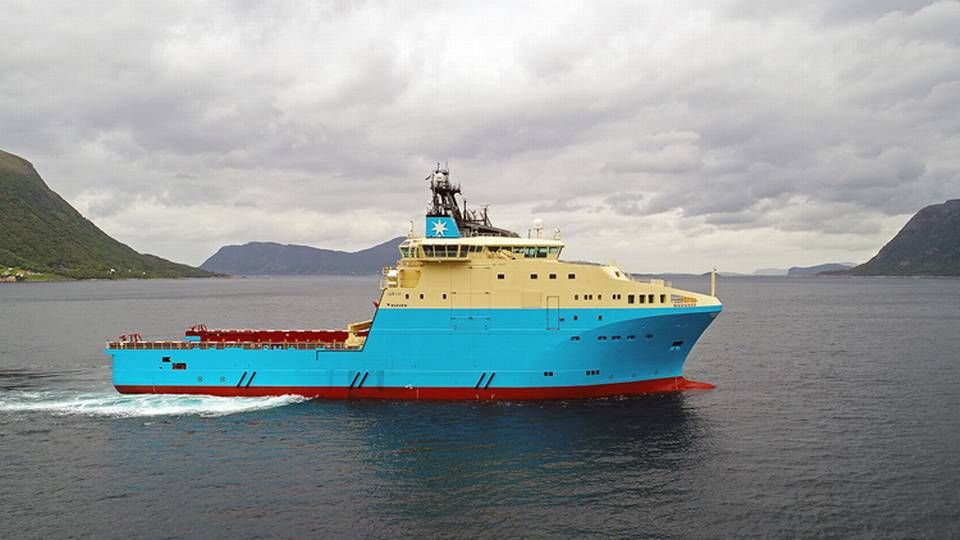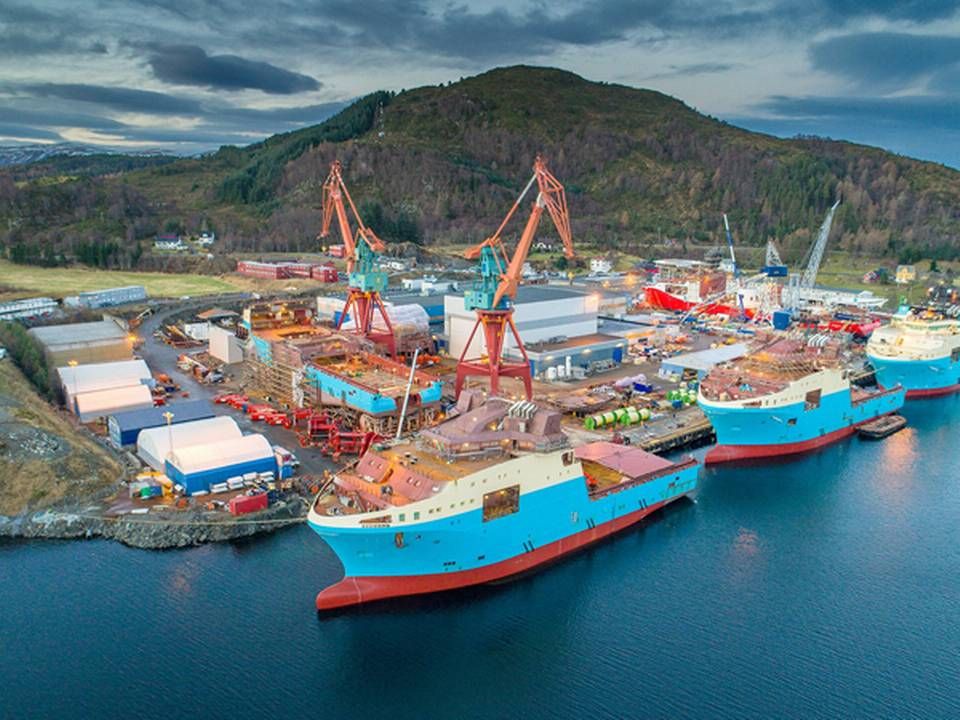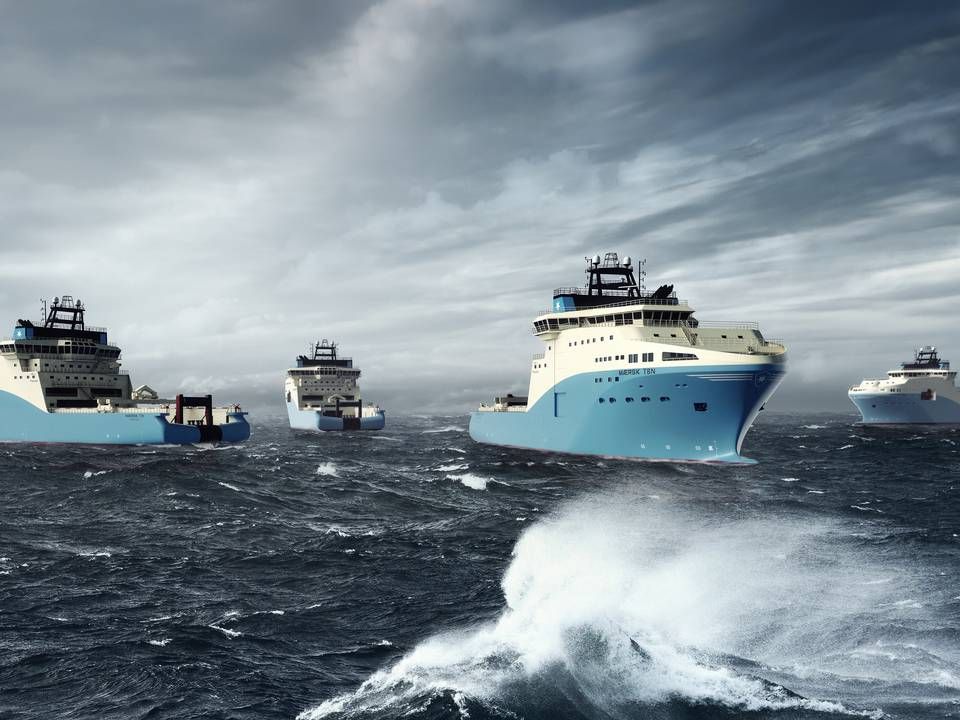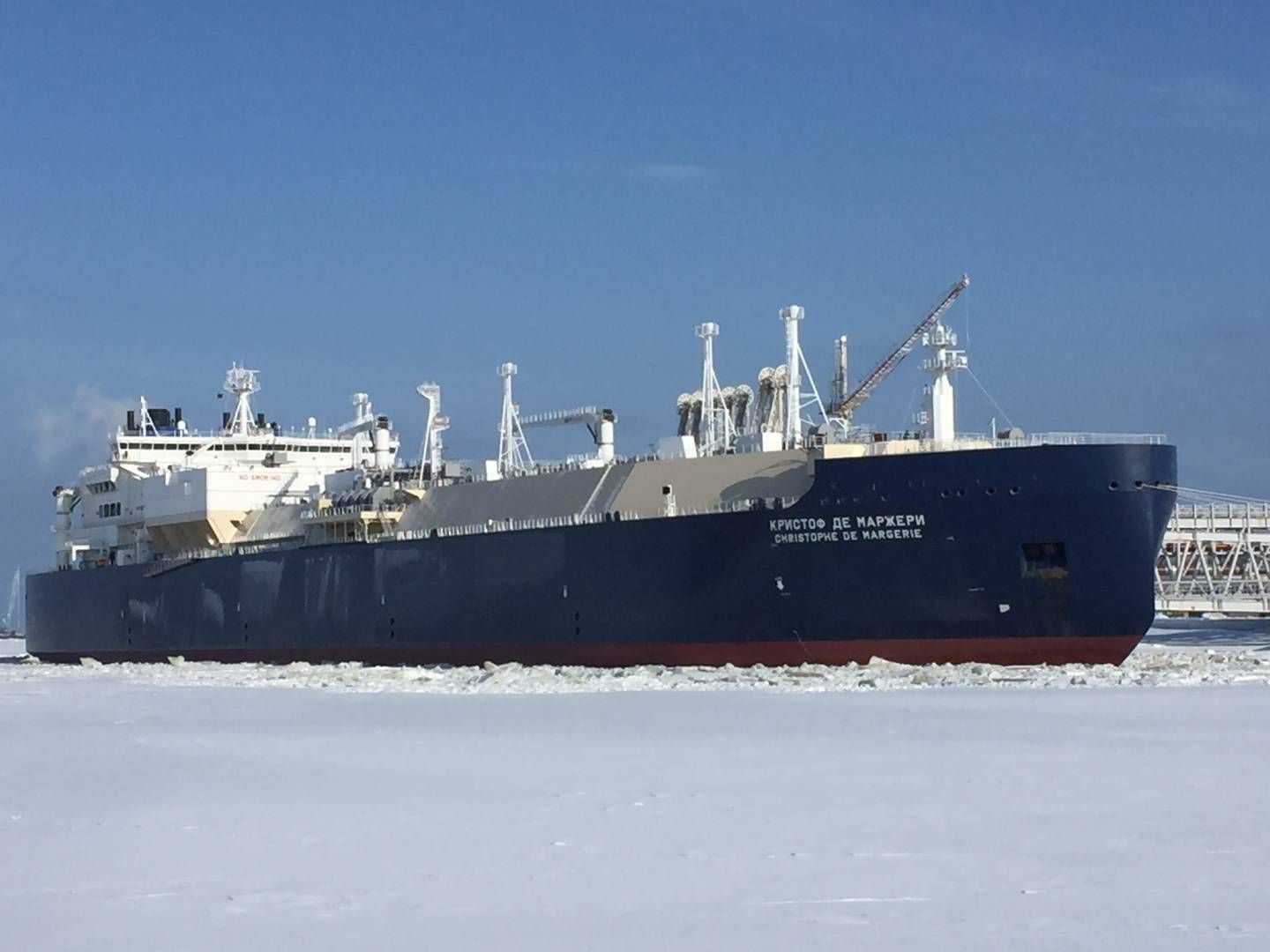Low oil price caught up with Maersk's sale of energy business

It took A.P. Møller-Maersk nearly three years to realize that it was a near-impossible task to divest all oil-assets according to the plan set out by the company.
The large and extensive transformation launched at the end of September 2016 with the exact goal of divesting all oil-related businesses and focus solely on transport and logistics as Maersk's future and continued business.
The plan – in which new solutions needed to be found for Oil, Tankers, Drilling and Supply Service – got off to a good start, as Maersk was able to announce the sale of its oil business Maersk Oil to French Total in August 2017.
Just one month later, in September 2017, came the sale of Maersk Tankers to the Mærsk family and A.P. Møller Holding. It is however unknown whether the sale to the family was the preferred option.
Then came a long period of silence regarding the two remaining businesses, Maersk Drilling and Maersk Supply Service, which have both been squeezed by hoved-to markets since the collapse of the oil price in late-2014.
The drilling company will be listed as an independent company next week, April 4, however, this was not the preferred option. And today, Maersk finally had to give up on selling Maersk Supply Service and instead keep the offshore company contrary to the original plan.
Why didn't the family buy?
Thereby, oil will continue to be part of Maersk's story in the longer run.
And the fact that A.P. Møller Holding did not step in and buy the offshore carrier – as it did with Maersk Tankers – is something several analysts have noted to ShippingWatch.
"The only thing that surprises me is that they didn't do a family sale. But if prices are low and the price is questionable that may not have been possible," says share analyst Michael Friis Jørgensen from Alm. Brand.
Ricky S. Rasmussen from Nykredit is less surprised, he believes the Mærsk family may become a potential buyer with time.
"But they need to be able to justify that Maersk Supply Service is the right business case. I don't think it has been a given that it would just go to A.P. Møller Holding, as was the case with Tankers," says Rasmussen.
ShippingWatch has asked A.P. Møller Holding why the family was not the solution to Maersk's efforts to offload Maersk Supply Service.
A.P. Møller Holding writes in a written reply:
"A.P. Møller-Maersk has made a recommendation to continue the ownership of Maersk Supply Service with a focus on developing the business. Our task is always to do what is right for all shareholders in A.P. Møller-Maersk, therefore we support the solution the board of A.P. Møller-Maersk has suggested," writes Mika Bildsøe Lassen, head of communications at A.P. Møller Holding, to ShippingWatch.
Both analysts maintain that a sale may still be on the drawing board in the future.
"In my view, Maersk has made a clean cut, and I think it is difficult to change the strategy and say that Maersk Supply Service is part of the business plan. It just wasn't possible to sell Maersk Supply Service right now, but if better times and better prices were to come, I think it is still for sale," says Michael Friis Jørgensen.
The announcement thus buys Maersk time to wait for better times.
"Maersk is buying itself more time for an up-period. In four or five years this might be looking completely different, once investments are not as big as now," says Rasmussen.
Maersk: Focus on earning money
ShippingWatch has asked Maersk whether today's announcement is a permanent solution for the offshore carrier or whether it is just a delay of the sales process.
In a written response, Maersk writes to ShippingWatch:
"We are suspending the process and maintaining the ownership of Maersk Supply Service. Focus will now be on continuing work to develop the company and make it more profitable based on the differentiation strategy launched in 2016."
Maersk also rejects that Maersk Supply Service will divest of its fleet, and refers to the fact that Maersk Supply Service in 2016 decided to reduce its fleet due to the global overcapacity in offshore service vessels.
The average age of Maersk Supply Service's 44 vessels is therefore less than ten years.
(The article continues below the graph)
Positioned for recovery
Maersk's U-turn is just the most recent example of how difficult conditions are in the industry, in which many idled vessels are pressuring companies in terms of earnings.
Newly merged Norwegian offshore major Solstad Offshore, for example, has to secure a major rescue plan following a catastrophic 2018, in which the company booked a major deficit. Last year, Bourbon Offshore also launched a savings plan, which includes splitting up activities and selling-off 41 older offshore vessels.
Recently, there have, however, been a few bright spots in the market, says brokerage firm Fearnley's Offshore Service to ShippingWatch. And the rejuvenation of the Maersk-carrier's fleet may help position the supply service carrier in a favorable way once the market recovery sets in.
"Since the capital invested in Maersk Supply only makes up 1.6 percent of Maersk, the potential upside is more interesting than what the company could have gotten for the company today," says Jesper Skjong, market analyst at Fearnley's Offshore Service to ShippingWatch, continuing:
"In some regions, especially in the North Sea, Brazil and West Africa, the market is improving, and after slimming its fleet, Maersk Supply Service is well positioned for a recovery."
For Maersk Supply Service, in particular, it is a significant "weakness" that the fleet is not very strong in the psv-segment (platform support vessels), elaborates Skjong.
"(...) which already now show significant signs of improvements, in which AHTS (anchor handling tug supply vessels, -ed.) are a little further ahead in time. Construction vessels are strategic, as they can work with much more than just subsea installations, and we expect an increased need for such ships in the future," says Skjong.
Maersk Supply Service's fleet consists of 44 vessels, according to the company's website. Only two of which can be described as psvs, while 30 are classified as AHTSs. The remaining 12 are subsea support vessels.
English Edit: Ida Jacobsen
Maersk abandons sale of Maersk Supply Service
Three years for sale and still no buyers for Maersk Supply Service
Nordic offshore companies impair fleet by half a billion dollars
Related articles
Maersk abandons sale of Maersk Supply Service
For subscribers




















